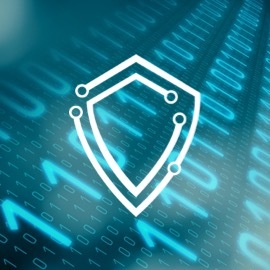Certified and Reaching Success
Last week here at NexGenT we congratulated our very first Cyber Security Specialist cohort for passing their skills qualification check and becoming certified as a NexGenT Cyber Security Associate (NCSA)! The cohort began on March 23rd 2020 with 23 students graduating from their technical training this past August.
Out of the 23 graduates who now hold an NCSA certification, 3 are now also CompTIA Security+ certified and 3 others have already landed their first job in the industry, some even with little to no experience prior to joining the program. That is what project-based learning and real-world skills training will get you! Several other students from the cohort also already have job interviews lined up which they feel very confident about.
We spoke to Roberto Buenrostro, NCSA #0025, about his experience completing the program. When he signed up for the Zero To Engineer, Cyber Security Specialist program from NexGenT, he was working an array of part-time positions unrelated to IT but had a couple certifications such as CompTIA Net+ and A+. He quickly realized that certifications look great on paper, but what was missing from his resume was hands-on skills and knowledge. “A lot of other schools give you theoretical knowledge but NexGenT gives you a lot of the hands-on practical knowledge to actually know what you’re doing.”

What’s The Program Like?
The ZTE programs are similar to that of an online bootcamp – getting straight to the meaty topics, getting hands-on knowledge and skills, and working projects instead of theory. Over the span of 22 weeks (on a 20 hour per week schedule), the program focused on 4 weeks of network fundamentals and network security, 9 weeks of core cyber security skills, and 8 final weeks of practical skills vetted inside a robust cyber range. Students had a substantial amount of engagement with ransomware, botnets, and various red team / blue team scenarios. By the final weeks, they were launching backdoor shells, gaining access into remote administrative servers, and proving their ability to mitigate these same attacks.
To become NCSA certified, students are required to do more than just a fill in the blank. They must complete and pass a military inspired skills qualification check (SQC) where they are required to perform a checklist of skills. The cyber SQC mimicked 2 cyber range scenarios including stopping exfiltration of banking data, and using snort rules to identify and remove malware from an office network. To be able to identify an attack, find the root source, delete, and prevent takes a lot of work and the students were successfully able to handle these challenges thrown at them. It was a great journey to see them level up their skills and become cyber rockstars!
Our second and third Cyber Security Specialist cohorts have also recently launched on May 22nd and July 17th 2020, respectively, and our fourth will launch on September 18th 2020. To learn more about becoming a cyber security professional and getting high-quality training with zero upfront costs, click here.

CERTIFIED AS OF AUGUST 9, 2020
| NCSA-0002 | Shirl Marshall | |
| NCSA-0003 | Eric Madlangbayan | |
| NCSA-0004 | Naioma McPherson | |
| NCSA-0005 | Amer Saleemi | |
| NCSA-0006 | Don Jayathilake | |
| NCSA-0007 | Jon Mallory | |
| NCSA-0008 | Gabriel Innecco | |
| NCSA-0009 | Ahmed Abdelmoneim | |
| NCSA-0010 | Tracy Orr | |
| NCSA-0011 | Sid Real | |
| NCSA-0012 | Lester Daniels | |
| NCSA-0013 | Taylor Beckner | |
| NCSA-0014 | Ralph Venisee | |
| NCSA-0015 | Antonio Rodgers | |
| NCSA-0016 | Sylvester Rolack | |
| NCSA-0017 | Michael O’Reggio | |
| NCSA-0018 | Joseph Orozco | |
| NCSA-0019 | Scott Fearon | |
| NCSA-0021 | Wendi Jonkers | |
| NCSA-0022 | Ryan Delaney | |
| NCSA-0023 | Rashiem Briggs | |
| NCSA-0024 | Lorraine May | |
| NCSA-0025 | Roberto Buenrosto |

0 Comments